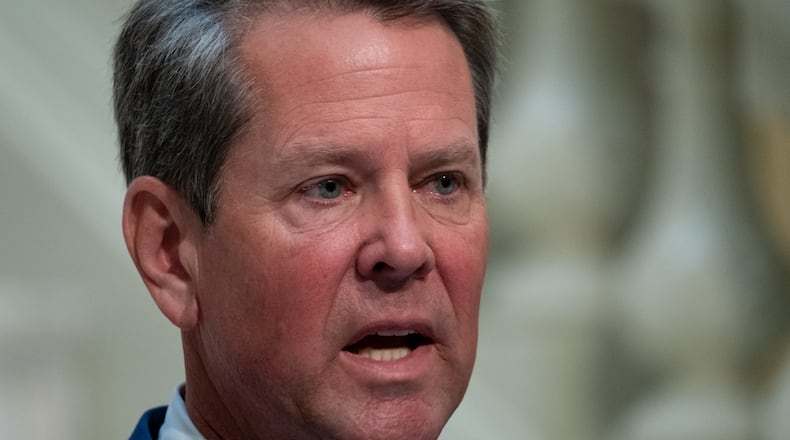Gov. Brian Kemp has signed into law a package of legislation that aims to overhaul the state’s foster care system and crack down on human trafficking in Georgia.
After naming it as a priority at the beginning of the 2020 legislative session, Kemp in recent weeks has signed bills that, among other things, aim to make it easier for foster parents to hire child care and move court cases involving children in foster care more quickly through the legal process.
Kemp also signed bills addressing human trafficking, a priority of Georgia first lady Marty Kemp.
“As these bills take the force of law, we are fulfilling an ongoing commitment to enhance our foster care system, achieve positive outcomes for our children, and hold the perpetrators of human trafficking accountable,” the governor said.
House Bill 912 will allow foster parents to extend the amount of time a child in their care can be left with a babysitter from two to three days without having to get approval through the state Division of Family and Children Services, something that supporters said would improve guardians’ quality of life.
HB 912′s sponsor, Republican state Rep. Bert Reeves of Marietta, said the legislation aims to make it easier for foster parents to take a weekend trip or handle an out-of-town emergency without submitting the person providing child care to the DFCS approval process — which can range from undergoing a background check to the agency inspecting the home. The child care provider would have to be at least 18 years old.
The new law also will require judges to prioritize cases involving children in foster care and asks juvenile courts to better track those cases.
State Sen. Matt Brass, a Newnan Republican who sponsored legislation that was folded into HB 912, said the new law aims to have judges prioritize foster care-related cases “over all other civil and criminal hearings.” Juvenile courts also would be required to document the timeline as cases move through the system.
House Bill 911 closes what Kemp called a “loophole” in Georgia law, making it illegal for a foster parent to engage in a sexual activity with those in his or her care — specifically after that child turns 16, Georgia’s legal age of consent.
Kemp also signed House Bill 823, which bars anyone convicted of human trafficking from getting a commercial driver’s license if their conviction involved driving a commercial vehicle. It mirrors a federal law, the No Human Trafficking on Our Roads Act, that has established a similar ban.
“This fight is far from over, and it is one that we are focused on winning,” Marty Kemp said. “Every day, we will continue to do our part to keep our children safe and ensure that those who would put them in harm’s way know that they have no place in Georgia.”
About the Author
Keep Reading
The Latest
Featured





